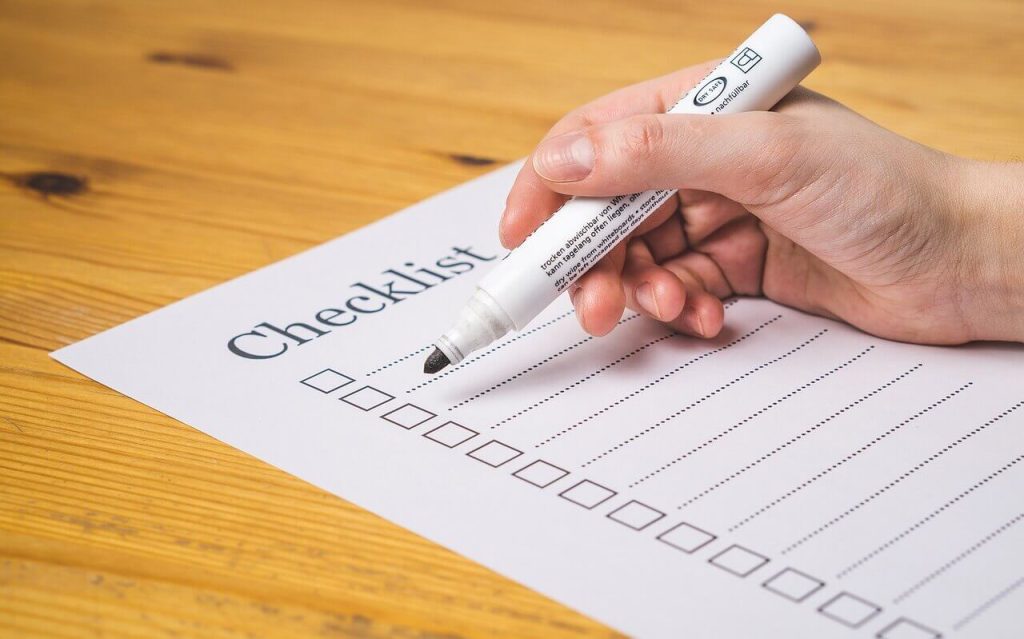Pre Departure To-Do List For Students Going Abroad For Higher Studies
Intro: Pre Departure To-Do List For Students Going Abroad For Higher Studies
Pre Departure To-Do List For Students Going Abroad For Higher Studies: As the excitement of studying abroad for higher studies begins to set in, it’s important for students to remember that there are several important tasks to complete before departure. This pre-departure to-do list for students going abroad for higher studies will help ensure a smooth transition to a new country and academic environment.

Confirm Your Admission and Accommodation Details
Before you embark on your journey abroad, it’s critical to ensure all your academic and living arrangements are firmly in place. Begin by revisiting your university or college admission status to confirm your acceptance and enrollment. This step is paramount, as it solidifies your path to studying overseas. Following this, turn your attention to where you’ll reside during your studies. Whether you’ve opted for on-campus housing, a shared apartment, or a homestay, obtaining confirmation of your accommodation is essential.
Should you encounter any uncertainties or require further information, don’t hesitate to reach out to your educational institution or housing provider. They can offer clarifications and assist with any adjustments you might need to make. Remember, securing your academic and living arrangements early on not only provides peace of mind but also allows you to focus on preparing for the exciting educational journey that lies ahead.
Also visit:-
Obtain Necessary Travel and Study Documents
Compiling your travel and academic documents is a critical step that cannot be overlooked when preparing for your educational journey abroad. Start with ensuring your passport has a validity period that extends well beyond the duration of your course. Next, the acquisition of a student visa is pivotal, as it grants you legal permission to study and, in many cases, work part-time in your host country. Keep close at hand your acceptance letter from the university, which serves as proof of your intent to study and is often required for various administrative processes.
Additionally, securing health insurance coverage that is accepted in the country you’ll be studying in is indispensable. This ensures that you have access to medical care without facing exorbitant costs. Gather your academic records, including transcripts and diplomas, as they may be needed for enrollment verification or as part of scholarship applications.
It’s advisable to create electronic copies of all these documents and store them in a secure, easily accessible online space. This acts as a safeguard against loss or damage of physical copies. Including a list of emergency contacts and relevant embassy information is also wise, providing an added layer of security during your stay abroad.
This process, though it may seem daunting, is essential in laying the groundwork for a hassle-free educational experience. By methodically organizing all necessary travel and study documents well in advance, you ensure that the focus remains on the exciting academic and personal growth opportunities that await you in your new adventure.
Schedule a Health Check-up and Vaccinations
Before setting off on your educational adventure overseas, taking proactive steps towards managing your health is imperative. Arranging a comprehensive health check-up is the cornerstone of this preparation. During this visit, discuss with your healthcare provider any vaccinations that might be necessary based on your destination. Different countries may have specific health risks, and being vaccinated can protect you from various diseases that are uncommon in your home country.
It’s also an opportune time to inquire about prescriptions or over-the-counter medications you may need while abroad. Given the varying availability of medications in different countries, obtaining a sufficient supply of any prescribed medication is crucial. Ensure these medications are in their original packaging and accompanied by a doctor’s note to avoid any complications with customs or local laws.
Highlight to your healthcare provider the length of your stay and any travel plans within the country or to neighboring regions, as this may influence their recommendations for vaccinations or health precautions. Additionally, inquire about any health advisories or concerns specific to the area you will be studying in.
Remember, this health check-up is not only about vaccinations but also an opportunity to address any health concerns you may have regarding your time abroad. Whether it’s dietary advice, managing pre-existing conditions, or mental health support, ensuring you’re as healthy as possible before your departure is key. This proactive approach to your health care will not only safeguard your well-being but also enable you to fully embrace and enjoy your international educational experience.
Plan Your Finances and Budget
Navigating the financial aspect of your study abroad experience is crucial to ensuring a worry-free academic journey. Begin by conducting thorough research into the average cost of living in your destination country. This encompasses not just your academic expenses, such as tuition and textbooks, but also the day-to-day costs including housing, meals, local transportation, and leisure activities. Understanding these expenses will enable you to develop a comprehensive budget that reflects your anticipated monthly outlays.
To further streamline your financial management while abroad, investigate banking options available in your host country. Opening a local bank account might be advantageous for managing day-to-day transactions and could offer benefits such as lower transaction fees compared to using your home country’s bank account or credit cards internationally.
Additionally, it’s wise to consider potential sources of income or financial support while abroad. Explore opportunities for scholarships, grants, or part-time employment that align with your student visa’s stipulations. Having a contingency fund for unexpected expenses is also prudent. This reserve could cover emergency medical expenses not included in your health insurance, last-minute travel, or academic costs that weren’t anticipated.
While creating your budget, prioritize your spending to ensure your essential needs are met before allocating funds to discretionary expenses. Utilizing budgeting tools or apps can help keep your finances on track, allowing you to adjust your spending habits as necessary throughout your stay.
Effective financial planning is about more than just making ends meet; it’s about maximizing your study abroad experience without the stress of financial strain, enabling you to focus on your academic and cultural exploration.
Also visit:-
Pack Smart – Essentials and Prohibitions
Embarking on your journey requires careful consideration of what to bring along. Start by curating a packing list that prioritizes items vital for your daily life and academic success. Key documents, like your passport, visa, and university acceptance letter, should be at the top of this list, accompanied by a reliable form of identification and copies stored securely online. Clothing should be versatile and appropriate for the climate you’re entering, with a focus on layering options that can adapt to changing seasons. Toiletries should include any personal care items you might not find abroad, but remember to adhere to airline restrictions regarding liquids in carry-on luggage.
Electronics are essential for staying connected and completing coursework, so ensure your laptop, chargers, and adapters are compatible with your destination’s electrical standards. Don’t forget to include a few comfort items, such as photos or a favorite book, to help ease the transition to your new home.
Understanding the host country’s prohibitions is crucial. Research beforehand to avoid packing items that are restricted or banned, such as certain medications, food products, or materials that could be considered offensive or illegal. This due diligence will prevent complications upon arrival and ensure you’re not unknowingly breaking local laws.
Remember, packing smart isn’t just about what you bring; it’s also about leaving behind what you don’t need. The goal is to arrive prepared but not overburdened, allowing you to focus on the incredible experience of studying abroad with ease and confidence.
Familiarize Yourself With Local Laws and Customs
Understanding the cultural landscape and legal framework of your host country is paramount for a seamless adaptation to your new environment. Researching local laws can safeguard you against unintentional legal infractions. It’s essential to know the basics, such as traffic laws, public behavior norms, and any restrictions on speech or dress codes that might be significantly different from what you’re accustomed to. Additionally, familiarizing yourself with the customary practices and etiquette of your host country can greatly enhance your social interactions and help you integrate more smoothly into the community.
This might include understanding greeting rituals, dining etiquette, and the appropriate way to address professors and peers. Delving into these aspects not only shows respect for the culture you’re entering but also minimizes the risk of misunderstandings or offending locals. Consider leveraging resources such as cultural orientation guides, expatriate forums, or even language and culture courses offered by your institution. Engaging with these resources demonstrates a proactive approach to respecting and understanding the societal norms of your host country, laying the foundation for a positive and enriching international study experience.
Remember, being well-informed about the local customs and legalities is a critical step in your journey, enabling you to navigate your new surroundings with confidence and cultural sensitivity.
Also visit:-
Set Up a Communication Plan With Family
Creating a reliable communication plan with your family before heading abroad is essential to maintaining strong relationships and ensuring peace of mind during your educational journey. Determine the most effective and convenient communication tools for both you and your family. Options such as video calling apps, instant messaging, and email provide various ways to stay connected across different time zones. Discuss and agree upon regular communication schedules that accommodate everyone’s routine, ensuring that you can share updates, experiences, and even seek advice when needed without disrupting each other’s daily lives.
Additionally, explore the possibility of using collaborative online platforms that allow for the sharing of photos, videos, and documents. This not only keeps your family informed about your academic progress and adventures but also involves them in your life abroad, making the distance feel shorter. It’s also prudent to have a plan for emergency situations, including understanding the international dialing codes and having a list of emergency contacts readily available.
Encourage your family members to familiarize themselves with the communication apps and platforms you plan to use. A brief tutorial session before you leave could help avoid any technical difficulties once you’re abroad. This preparation ensures that, despite being miles apart, you and your family can maintain a close-knit relationship, providing a crucial support system throughout your time abroad. Remember, effective communication is key to navigating the challenges of studying abroad and helps in keeping homesickness at bay.
Join Online Groups or Forums
Leveraging the power of social media and online communities can significantly enhance your preparation for studying abroad. Engaging with online groups or forums that cater to international students can provide a platform for sharing insights and obtaining advice from peers who are navigating the same journey. These digital spaces offer a unique opportunity to connect with individuals from various backgrounds, potentially leading to lasting friendships and invaluable networks.
When seeking out these online communities, focus on those that are specific to your destination country or academic institution. This specificity can yield more targeted advice and experiences relevant to your upcoming adventure. Within these forums, members often discuss a range of topics, from practical advice on local transportation options to recommendations for must-visit places.
Participation in these groups allows you to ask questions and express any concerns you might have about moving abroad for your studies. It’s a safe space where the shared goal is to support and uplift one another through shared experiences and knowledge. You might find tips on the best local cafes for studying, how to navigate cultural differences, or even advice on adjusting to the academic rigor of your chosen institution.
Additionally, these forums can be a great resource for finding roommates, forming study groups, or meeting up with fellow students upon arrival. The connections made here can ease the transition to your new environment, providing a sense of community and belonging right from the start.
Remember, while the wealth of information and support found in these online groups is invaluable, it’s essential to approach the advice with discernment. Cross-reference information when necessary and consider the credibility of the sources. Engaging actively yet thoughtfully in these forums will maximize their benefit, enriching your study abroad experience even before you depart.
Pre Departure To-Do List For Students Going Abroad For Higher Studies with Education Tree Global: Always remember Education Tree Global to know about Pre Departure To-Do List For Students Going Abroad For Higher Studies.

 Menu
Menu


